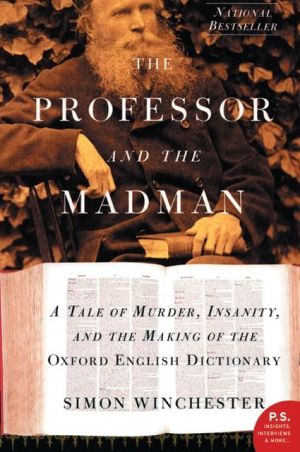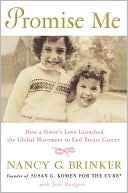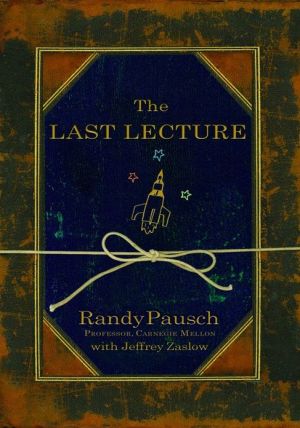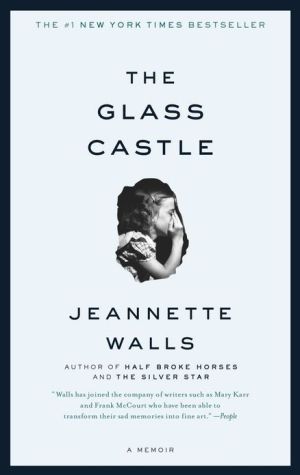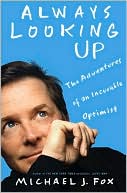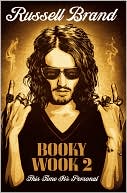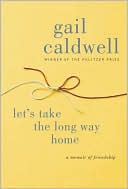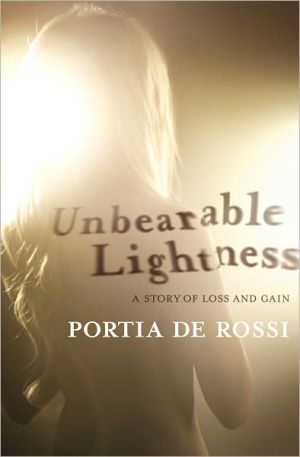Professor and the Madman: A Tale of Murder, Insanity, and the Making of the Oxford English Dictionary
The Professor and the Madman, masterfully researched and eloquently written, is an extraordinary tale of madness, genius, and the incredible obsessions of two remarkable men that led to the making of the Oxford English Dictionary — and literary history. The compilation of the OED began in 1857, it was one of the most ambitious projects ever undertaken. As definitions were collected, the overseeing committee, led by Professor James Murray, discovered that one man, Dr. W. C. Minor, had...
Search in google:
Part homage to the greatest reference work of all time, the Oxford English Dictionary, part mystery, part intellectual history of Victorian England, The Professor and the Madman tells the parallel stories of the dictionary's genius editor and one of his most prolific contributors, an insane American doctor committed to an asylum for murder. USA Today - Bob Minzesheimer It's a story for readers who know the joy of words and can appreciate side trips through the history of dictionaries and marvel at the idea that when Shakespeare wrote, there were no dictionaries to consult.... Winchester, a British journalist who's written 12 other books, combines a reporter's eye for detail with a historian's sense of scale. His writing is droll and eloquent.
\ the dead of Night\ in Lambeth Marsh\ \ Murder (m2.0de0), sb. Forms: a. 1 mor1or, -ur, 3-4 mor1re, 3-4, 6 murthre, 4 myr1er, 4-6 murthir, morther, 5 Sc. murthour, murthyr, 5-6 murthur, 6 mwrther, Sc. morthour, 4-9 (now dial. and Hist. or arch.) murther; b. 3-5 murdre, 4-5 moerdre, 4-6 mordre, 5 moordre, 6 murdur, mourdre, 6- murder. [OE. mor3or neut. (with pl. of masc. form mor1ras) = Goth. maur1r neut.:-OTeut. *mur1rom:-pre-Teut. *mrtro-m, f. root *mer-: mor-: mr- to die, whence L. mori' to die, mors (morti-) death, Gr. mort'j, brot'j mortal, Skr. mr. to die, mara masc., mrti fem., death, marta mortal, OSl. mi'r'eti, Lith. mirti to die, Welsh marw, Irish mar1 dead.\ The word has not been found in any Teut. lang. but Eng. and Gothic, but that it existed in continental WGer. is evident, as it is the source of OF. murdre, murtre (mod. F. meurtre) and of med. L. mordrum, murdrum, and OHG. had the derivative murdren Murder v. All the Teut. langs. exc. Gothic possessed a synonymous word from the same root with different suffix: OE. mor3 neut., masc. (Murth1), OS. mor3 neut., OFris. morth, mord neut., MDu. mort, mord neut. (Du. moord), OHG. mord (MHG. mort, mod. G. mord), ON. mor3 neut.:-OTeut. *mur1o-:-pre-Teut. *mrto-.\ The change of original 3 into d (contrary to the general tendency to change d into 3 before syllabic r) was prob. due to the influence of the AF. murdre, moerdre and the Law Latin murdrum.]\ 1. The most heinous kind of criminal homicide; also, an instance of this. In English (also Sc. and U.S.) Law, defined as the unlawful killing of a human being with malice aforethought; often more explicitly wilful murder.\ In OE. the word could be applied to any homicide that was strongly reprobated (it had also the senses 'great wickedness', 'deadly injury', 'torment'). More strictly, however, it denoted secret murder, which in Germanic antiquity was alone regarded as (in the modern sense) a crime, open homicide being considered a private wrong calling for blood-revenge or compensation. Even under Edward I, Britton explains the AF. murdre only as felonious homicide of which both the perpetrator and the victim are unidentified. The 'malice aforethought' which enters into the legal definition of murder, does not (as now interpreted) admit of any summary definition. A person may even be guilty of 'wilful murder' without intending the death of the victim, as when death results from an unlawful act which the doer knew to be likely to cause the death of some one, or from injuries inflicted to facilitate the commission of certain offences. It is essential to 'murder' that the perpetrator be of sound mind, and (in England, though not in Scotland) that death should ensue within a year and a day after the act presumed to have caused it. In British law no degrees of guilt are recognized in murder; in the U.S. the law distinguishes 'murder in the first degree' (where there are no mitigating circumstances) and 'murder in the second degree'.\ \ \ In Victorian London, even in a place as louche and notoriously crime-ridden as Lambeth Marsh, the sound of gunshots was a rare event indeed. The marsh was a sinister place, a jumble of slums and sin that crouched, dark and ogrelike, on the bank of the Thames just across from Westminster; few respectable Londoners would ever admit to venturing there. It was a robustly violent part of town as well--the footpad lurked in Lambeth, there had once been an outbreak of garroting, and in every crowded alley were the roughest kinds of pickpocket. Fagin, Bill Sikes, and Oliver Twist would have all seemed quite at home in Victorian Lambeth: This was Dickensian London writ large.\ But it was not a place for men with guns. The armed criminal was a phenomenon little known in the Lambeth of Prime Minister Gladstone's day, and even less known in the entire metropolitan vastness of London. Guns were costly, cumbersome, difficult to use, hard to conceal. Then, as still today, the use of a firearm in the commission of a crime was thought of as somehow a very un-British act--and as something to be written about and recorded as a rarity. "Happily," proclaimed a smug editorial in Lambeth's weekly newspaper, "we in this country have no experience of the crime of 'shooting down,' so common in the United States."\ So when a brief fusillade of three revolver shots rang out shortly after two o'clock on the moonlit Saturday morning of February 17, 1872, the sound was unimagined, unprecedented, and shocking. The three cracks--perhaps there were four--were loud, very loud, and they echoed through the cold and smokily damp night air. They were heard--and, considering their rarity, just by chance instantly recognized--by a keen young police constable named Henry Tarrant, then attached to the Southwark Constabulary's L Division.\ The clocks had only recently struck two, his notes said later; he was performing with routine languor the duties of the graveyard shift, walking slowly beneath the viaduct arches beside Waterloo Railway Station, rattling the locks of the shops and cursing the bone-numbing chill.\ When he heard the shots, Tarrant blew his whistle to alert any colleagues who (he hoped) might be on patrol nearby, and he began to run. Within seconds he had raced through the warren of mean and slippery lanes that made up what in those days was still called a village, and had emerged into the wide riverside swath of Belvedere Road, from whence he was certain the sounds had come.\ Another policeman, Henry Burton, who had heard the piercing whistle, as had a third, William Ward, rushed to the scene. According to Burton's notes, he dashed toward the echoing sound and came across his colleague Tarrant, who was by then holding a man, as if arresting him. "Quick!" cried Tarrant. "Go to the road--a man has been shot!" Burton and Ward raced toward Belvedere Road and within seconds found the unmoving body of a dying man. They fell to their knees, and onlookers noted they had cast off their helmets and gloves and were hunched over the victim.\ There was blood gushing onto the pavement--blood staining a spot that would for many months afterward be described in London's more dramatically minded papers as the location of a heinous crime, a terrible event, an atrocious occurrence, a vile murder.\ The Lambeth Tragedy, the papers eventually settled upon calling it--as if the simple existence of Lambeth itself were not something of a tragedy. Yet this was a most unusual event, even by the diminished standards of the marsh dwellers. For though the place where the killing occurred had over the years been witness to many strange events, the kind eagerly chronicled in the penny dreadfuls, this particular drama was to trigger a chain of consequences that was quite without precedent. And while some aspects of this crime and its aftermath would turn out to be sad and barely believable, not all of them, as this account will show, were to be wholly tragic. Far from it, indeed.
1: The Dead of Night in Lambeth Marsh 2: The Man Who Taught Latin to Cattle 3: The Madness of War 4: Gathering Earth's Daughters 5: The Big Dictionary Conceived 6: The Scholar in Cell Block Two 7: Entering the Lists 8: Annulated, Art, Brick-Tea, Buckwheat 9: The Meeting of Minds 10: The Unkindest Cut 11: Then Only the Monuments Postscript Author's Note Acknowledgments Suggestions for Further Reading
\ From Barnes & NobleThe Barnes & Noble Review\ September 1998\ \ Perhaps the greatest character of this story is the dictionary itself: a complete history and definition of every word that ever existed in the English language. Originally envisioned as a ten-year project that would produce 6,400 pages spread through four volumes, the finished product took 70 years to complete and comprised some 15,490 pages over ten volumes. There are 414,800 words in the OED, defined and illustrated by 1,861,200 quotations from some 4,500 works of literature by 2,700 writers, all of it compiled by 2,000 contributors around the globe. The entire enterprise was overseen by a single editor. \ The Editor\ Though entrusted with the greatest literary project in the history of written English, James Murray (1837-1915) came from outside the establishment of London intellectual society and grew up in a world far removed from the rarified halls of Oxford University. A self-taught master of more than a dozen ancient and modern languages (his formal education ended at age 14), he developed a comprehensive knowledge of and driving passion for words. Murray's scholarly work brought him into the staid and prestigious London Philological Society. It was there that the dictionary project was launched and there, in 1879, that Murray was given control of it.\ As the editor in chief, it was his job to ensure the absolutely accurate cataloguing of every word English writers have ever written. He oversaw a workshop of clerks and subeditors who received, sorted, and resorted the thousands of submissions pouring in weekly from hundreds of active contributors around the world. The readers' job was to find the earliest possible illustrative uses of every word, write them on slips of paper, and ship them off to Oxford. Some contributors were more trouble than use. Others distinguished themselves as invaluable researchers.\ The Reader\ One of the most prolific readers was Dr. W. C. Minor, a retired U.S. Army captain, a Yale graduate, and an inmate of England's Broadmoor Criminal Lunatic Asylum. Cogent, but deeply and dangerously delusional, Minor contributed some 10,000 quotations to the dictionary over two decades.\ The Book\ The Professor and the Madman interweaves the sagas of Murray, Minor, and the OED with all the fascination of a well-crafted mystery, compelling the reader to find out how two such remarkable men came to cooperate on such a ludicrously ambitious project. Simon Winchester's history celebrates the dictionary, the man who made it happen, and one of the project's most remarkable volunteers. Three great stories for the price of one.\ --Greg Sewell\ \ \ \ \ \ Globe and Mail...It is one of the strengths of this book that it will, by its very sensationalism, attract and inform readers who might never normally lay down cold hard cash for the 'fascinating story of the history of English lexicography'....For those who know little of lexicography, this book is an entertaining, though not wholly reliable, introduction to the subject, particularly enlightening for those who labour under the delusion that the OED 's role is to prescribe what is 'proper' and 'improper' English.\ \ \ EconomistAn extraordinary tale, and Simon Winchester could not have told it better. . . . [He] has written a splendid book.\ \ \ \ \ Wall Street JournalDeftly weaves into a narrative full of suspense, pathos and humor.\ \ \ \ \ New York Times Book ReviewElegant. . .imaginative. . .One of the strangest modern literary stories.\ \ \ \ \ Bob MinzesheimerIt's a story for readers who know the joy of words and can appreciate side trips through the history of dictionaries and marvel at the idea that when Shakespeare wrote, there were no dictionaries to consult.... Winchester, a British journalist who's written 12 other books, combines a reporter's eye for detail with a historian's sense of scale. His writing is droll and eloquent. \ —USA Today\ \ \ \ \ San Francisco ChronicleEngaging, especially for readers who love words.\ \ \ \ \ Cleveland Plain DealerA literate, poignant story about extraordinary friendship and ordinary words.\ \ \ \ \ Boston GlobeA fascinating tale of madness. . .a compelling slice of social and intellectual history.\ \ \ \ \ USA TodayDroll and eloquent.\ \ \ \ \ Publishers WeeklyThe Oxford English Dictionary used 1,827,306 quotations to help define its 414,825 words. Tens of thousands of those used in the first edition came from the erudite, moneyed American Civil War veteran Dr. W.C. Minor -- all from a cell at the Broadmoor Criminal Lunatic Asylum. Vanity Fair contributor Winchester (River at the Center of the World) has told his story in an imaginative if somewhat superficial work of historical journalism. Sketching Minor's childhood as a missionary's son and his travails as a young field surgeon, Winchester speculates on what may have triggered the prodigious paranoia that led Minor to seek respite in England in 1871 and, once there, to kill an innocent man. Pronounced insane and confined at Broadmoor with his collection of rare books, Minor happened upon a call for OED volunteers in the early 1880s. Here on more solid ground, Winchester enthusiastically chronicles Minor's subsequent correspondence with editor Dr. J.A.H. Murray, who, as Winchester shows, understood that Minor's endless scavenging for the first or best uses of words became his saving raison d'etre, and looked out for the increasingly frail man's well-being. Winchester fills out the story with a well-researched mini-history of the OED, a wonderful demonstration of the lexicography of the word 'art' and a sympathetic account of Victorian attitudes toward insanity. With his cheeky way with a tale ('It is a brave and foolhardy and desperate man who will perform an autopeotomy' he writes of Minor's self-mutilation), Winchester celebrates a gloomy life brightened by devotion to a quietly noble, nearly anonymous task.\ \ \ \ \ KLIATTThis engaging book has three primary "characters": Sir James Murray, the editor of the first edition of the Oxford English Dictionary (OED); Dr. William Minor, a major contributor to that edition; and finally, the dictionary itself. Murray, a school dropout and a completely self-educated man, undertook the massive task of assembling the first complete dictionary in the English language. It was accomplished by many, many volunteers who read books from all periods of publishing and sent in quotations using the words needed. One of the volunteers was Dr. Minor, an American who murdered a man in London—the father of many children—and was sent to Broadmoor, a lunatic asylum. While there he read of the appeal for volunteers and applied himself to the exclusion of everything else in his life. For quite some time Murray knew nothing of Minor's background as the latter had not given the name of the institution with his return address. However, in time he did find out, went to visit Minor and they became fast friends in a most touching relationship. The third "character," the dictionary itself, is the background for Winchester's history of English lexicography, which he presents in a fascinating way. The dictionary took 70 years to complete (eight years beyond the death of Murray); it was published in 12 volumes, and defined 414,825 words. Minor contributed thousands and thousands of them. In considering the mammoth size of the task, remember that there were no dictionaries as we know them in the English language prior to this major undertaking. (Shakespeare had no dictionary.) Winchester calls it "the greatest effort since the invention of printing." The biographies of the two menrequired prodigious research on the part of Winchester, and the profiles of some of the minor figures, such as the murder victim, his wife, and the heads of the lunatic asylum, are interesting as well. This book may even send some students to the OED, which is now on CD-ROM. KLIATT Codes: SA—Recommended for senior high school students, advanced students, and adults. 2000, HarperPerennial, 242p, 21cm, bibliog, 98-10204, $13.00. Ages 16 to adult. Reviewer: Doris Hiatt; May 2000 (Vol. 34 No. 3)\ \ \ \ \ Library JournalWilliam C. Minor (1834-1920) was a Civil War surgeon whose war experience caused his personality to change. He became paranoid and was eventually diagnosed as schizophrenic. After three years in an asylum, he went to Europe in 1871 in pursuit of rest, getting as far as London before his paranoia caught up with him and he killed George Merritt. An English court found him not guilty on the ground of insanity, and Minor was sent to Broadmoor. Coming across a leaflet for volunteers to help compile a history of the English language, Minor offered his services, remaining vague about his background. After 17 years of correspondence, the editor of the Oxford English Dictionary came to meet Minor, who had submitted 10,000 definitions to the project, and was surprised that the genius was a patient at the Broadmoor Asylum. Finally released in 1910, Minor returned to the United States. Winchester's delightful, simply written book tells how a murderer made a huge contribution to what became a major reference source in the Western world. -- Michael Sawyer, Northwestern Regional Library, Elkin, North Carolina\ \ \ \ \ School Library JournalYA-This unusual and exciting account centers on two men involved in the creation of the Oxford English Dictionary-Professor James Murray, its editor, and Dr. William Chester Minor, a true Connecticut Yankee who was one of the resource's most prolific contributors. The most surprising aspect of this long and productive partnership was that Dr. Minor, probably a schizophrenic, was incarcerated in England's most notorious insane asylum during the whole of their working relationship. He was a scholar and medical doctor whose fragile mental condition was probably exacerbated by duty as a surgeon during the American Civil War. His imprisonment was not harsh and his devotion to the cause of the dictionary and his precise and prolific contributions probably helped him hold on to some sense of reality. Winchester's descriptions of Civil War battlefields and the search for definitions of words such as aardvark or elephant are intriguing and compelling. This is a fine tale for both word lovers and history buffs. The momentum of the beginning scenes of warfare and murder are followed, not disappointingly, by descriptions of the trials and tribulations of dictionary crafting. Readers will meet some extraordinary men and an unusual woman, and find themselves well and truly ensconced in the late 19th century.-Susan H. Woodcock, Kings Park Library, Burke, VA\ \ \ \ \ BooknewsA fine storyteller takes on a great story: American surgeon living in London kills a stranger, judged insane, incarcerated, connects with Jas. Murray the editor of the original OED, over decades contributes 10,000 examples of usage to the great dictionary. Good description of the creation of the OED. No index. Annotation c. Book News, Inc., Portland, OR (booknew.com)\ \ \ \ \ Time Out[Winchester's]. . .casual and engaging prose makes the book appealing to lay readers of general history. . .the author can't seem to stop getting in the way of his story. . .psychological insights are often labored and conjectural. . . .an interesting read on the background of one of the most important books in the English language.\ \ \ \ \ Chicago TribuneWinchester's eye for fascinating detail and gritty historical perspective. . . .make the book a compelling read.\ \ \ \ \ USA TodayDroll and eloquent.\ \ \ \ \ Time Out New York[Winchester's]. . .casual and engaging prose makes the book appealing to lay readers of general history. . .the author can't seem to stop getting in the way of his story. . .psychological insights are often labored and conjectural. . . .an interesting read on the background of one of the most important books in the English language.\ \ \ \ \ The Wall Street JournalDeftly weaves into a narrative full of suspense, pathos and humor.\ \ \ \ \ The Boston GlobeA fascinating tale of madness. . .a compelling slice of social and intellectual history.\ \ \ \ \ Vanessa V. Friedman. . .[T]he book has a certain old-fashioned sweetness. Think of it as a stocking stuffer for the literary set. \ -- Entertainment Weekly\ \ \ \ \ Mark RozzoBrisk and entertaining. -- Washington Post Book World\ \ \ \ \ Will SelfThis is almost my favorite kind of book: the work of social and intellectual history which through the oblique treatment of major developments manages to throw unusual light on humankind and its doings... Simon Winchester's effortlessly clear, spare prose is the perfect vehicle for the tale... absolutely riveting. -- The Times(London)\ \ \ \ \ Richard BernsteinArtfully parallels the story of . . .two extraordinary men, the eccentric professor and the murderer with the sharp intellect. -- The New York Times\ \ \ \ \ John BanvilleMadness, violence, arcane obsessions, weird learning, ghastly comedy, all set out in an atmosphere of. . .high neo-Gothic. The geographical span is wide, from Dickensian London to Florida's Pensacola Bay, from the beaches at Trincomalee to the Civil War battlefields of the United States. . . . It is a wonderful story. -- Literary Review\ \ \ \ \ Charles TaylorWhen we're children, the easiest way for writers and teachers and parents to hook us with a story is to begin with the words "Imagine a time when there was no ..." Simon Winchester, in his splendid, oddball slice of history The Professor and the Madman has come up with an irresistible hook. Imagine a time, Winchester asks us, when there were no dictionaries. That's such an unthinkable prospect to most readers and writers that Winchester needn't do any more to keep our interest. But he does. Winchester, a Salon contributor, uses this utterly fascinating account of how a combination of scholarship and nationalism begat what would become the "Oxford English Dictionary" a project that would eventually take 70 years and 12 volumes to complete to tell the story of the odd friendship the project sparked.\ The project began in earnest in 1878 under the editorship of Professor James Murray, a philologist and school teacher. Handbills were distributed through bookstores and libraries asking for volunteer readers to begin assembling word lists and quotations that illustrated the meanings of those words. One of the most productive of the volunteers was Dr. William Charles Minor, an American Army surgeon who had served in the Civil War. Gratified, Murray repeatedly invited Minor to visit him, invitations Minor always turned down. Murray finally discovered why: Minor had been an inmate at the Broadmoor Hospital for the Criminally Insane since 1871, when, in a deluded state, he had killed a man.\ Winchester wisely doesn't try to explain Minor's madness, though he suggests that it may have had something to do with his wartime experiences particularly one episode in which he was made to brand an Irish deserter. Winchester doesn't need to point up the irony that at Broadmoor, Minor found a more humane environment than he did in the Army. His cell consisted of two rooms, one large enough to house the books he used to pass what he probably knew would be a life sentence. Minor emerges as a learned, essentially decent man even the widow of the man he killed was a regular visitor for a time, sadly caught in the grip of obsessive delusions.\ If the initial sections of his tale have the appeal of a gaslight Victorian thriller, Winchester doesn't leave it at that. He's a superb historian because he's a superb storyteller. Nothing he includes here -- whether it's an examination of the section of London where Minor committed his crime, the genealogy of the two protagonists usually the dullest part of any history or biography or a brief history of the very notion of dictionaries -- feels like it's impeding his story. The strange richness of it all is enhanced by the flawless clarity of Winchester's prose. His Victorian style, far from being a pastiche or postmodernist game-playing, is his natural mode of expression. In this passage, he imagines Shakespeare composing Twelfth Night without aid of a dictionary: "Now what, exactly, did William Shakespeare know about elephants? Moreover, what did he know of Elephants as hotels? The name was one that was given to a number of lodging houses in various cities dotted around Europe ... But however many there were -- just why was this the case? Why name an inn after such a beast? And what was such a beast anyway? All of these are questions that, one would think, a writer should at least have been able to answer."\ Minor's diligence as a contributor resulted in his being responsible for something like 10,000 words in the final OED. He hoped that focusing on this task would deliver him from his psychosis, but Minor was also following his curiosities. Winchester, investigating an odd bit of background trivia about the making of one of the world's great books, has the courage of his own curiosity. The elegant curio he has created is as enthralling as a good story can be and as informative as any history aspires to be. --Salon Sept. 3, 1998\ \ \ \ \ \ The EconomistAn extraordinary tale, and Simon Wincheter could not have told it better.... [He] has written a splendid book.\ \ \ \ \ Wall Street JournalDeftly weaves into a narrative full of suspense, pathos and humor.\ \ \ \ \ The EconomistAn extraordinary tale, and Simon Winchester could not have told it better. . . . [He] has written a splendid book.\ \ \ \ \ San Francisco ChronicleEngaging, especially for readers who love words.\ \ \ \ \ Cleveland Plain DealerA literate, poignant story about extraordinary friendship and ordinary words.\ \ \ \ \ Bob MinzesheimerIt's a story for readers who know the joy of words and can appreciate side trips through the history of dictionaries and marvel at the idea that when Shakespeare wrote, there were no dictionaries to consult.... Winchester, a British journalist who's written 12 other books, combines a reporter's eye for detail with a historian's sense of scale. His writing is droll and eloquent. -- USA Today\ \ \ \ \ NY Times Book ReviewElegant. . .imaginative. . .One of the strangest modern literary stories.\ \ \ \ \ Kirkus ReviewsRemarkably readable, this chronicle of lexicography roams from the great dictionary itself to hidden nooks in the human psyche that sometimes house the motives for murder, the sources for sanity, and the blueprint for creativity. Manchester Guardian journalist Winchester (The River at the Center of the World) turns from Asia toward that most British of topics: the Oxford English Dictionary. His account is studded with odd persons and unexpected drama. To wit: When O.E.D. editor Professor James Murray headed off to meet a major contributor (of more than 10,000 entries) to his epochal reference work, he discovered that this distinguished philologist, Dr. William Chester Minor, was incarcerated for life in an asylum for the criminally insane. Minor, apparently a paranoiac killer, had committed murder in 1872. . . Ailing (and sexually repressed), he clung to his lexicographic efforts for dear life and the sake of his sanity, or what remained of it. 'All those Dictionary slips,' opines Winchester, 'were [Minor's] medication, [and] became his therapy.' When he describes the original O.E.D.'s '12 tombstone-sized volumes," we get a whiff of the grueling mental task exacted from its servants by the work, reminiscent of the labors involved in Melville's classic Bartleby the Scrivener, a book that is similarly a psychological masterwork.\ In praising the achievement of the work,Winchester rejoices, 'It wears its status with a magisterial self-assurance, not least by giving its half-million definitions a robustly Victorian certitude of tone.' Winchester's own tone and his prose are wonderfully Victorian, an apt mirror for his subject. The author begins each chapter with an entry from the original O.E.D. as an appropriate heading, such as 'murder,' 'lunatic,' 'polymath' ('a person of much or varied learning') and, eventually, 'acknowledgment.' First-rate writing: well-crafted, incisive, abundantly playful.\ \ \
